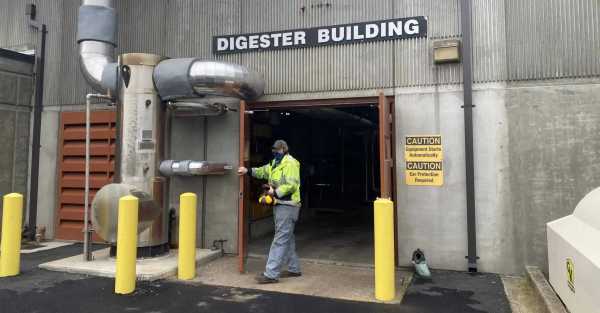https://reasonstobecheerful.world/oregon-water-treatment-methane-green-energy/Oregon Is Turning Sewage into an Endless Supply of Green Energy
"Chicoine estimates that they’ll save $319,000 on electricity and $99,500 on heat in the first year — savings that will only increase with ever larger volumes of wastewater. “As our population grows,” she says, “the average annual savings are anticipated to be about $619,000 on power and $191,000 on heat over the life of the engine.”
The solids that settle out of this process don’t go to waste, either. They’re removed to create nutrient-rich fertilizer, which is delivered to farmers in Eastern Oregon who use it on their non-food crops.
Prior to this co-generation system upgrade, the water treatment process still emitted methane, but it was simply burned off — natural energy created and immediately lost. Overall, it cost about $35 million to add the co-generation system, an expense that’s not financially feasible (or politically attractive) to all cities. But Eyerly recalls managing a treatment facility in Iowa, where excess methane was burned in flares. “People would drive by and see those flares, and they’d ask me, ‘What’s that?’” And he’d tell them: “That’s a waste of money.”
Energy Trust of Oregon has contributed about $2 million toward the cost of the project. “They didn’t have to install this co-generation system,” says Moldal of the people making decisions at Water Environment Services. But with wildfires a growing threat to the area’s power supply, the potential energy independence the system creates could prove increasingly critical. The site isn’t set up to run independently on biogas just yet, but Moldal envisions a future where this is the case.
By harnessing the natural production of methane, wastewater treatment facilities can turn one of the worst accelerators of global warming — methane emissions — into renewable energy that reduces local reliance on fossil fuels. Co-generation systems like Clackamas County’s aren’t yet commonplace, but they’re growing in popularity in the United States, China, Brazil, Argentina and Norway. "

